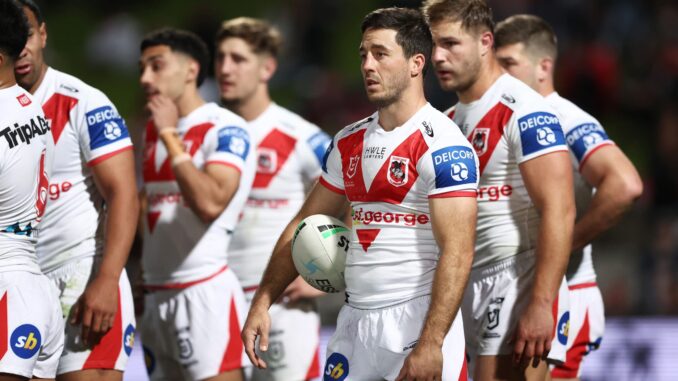
As the St. George Illawarra Dragons face the challenge of moving forward without their head coach, the situation raises questions about the team’s future and the strategies they will employ to maintain competitiveness in the NRL. The departure of a head coach can have a profound impact on a team’s performance, culture, and overall direction. This transition phase is critical and requires careful planning and execution.
The first step for the Dragons is to establish a clear interim leadership structure. Whether appointing an assistant coach to step up or bringing in a seasoned advisor, the team needs a steady hand at the helm. This individual will not only manage day-to-day operations but also serve as a bridge between players and the management, ensuring that communication remains open and effective during this tumultuous period.
Next, the Dragons will need to rally their players. A head coach often serves as a pivotal figure for motivation and strategy. In his absence, it becomes crucial for the players to step up and take responsibility for their performance on and off the field. This is a moment for team leaders to emerge, fostering a sense of unity and resilience among the squad. Veteran players must assume roles as mentors, guiding younger teammates through the challenges ahead and reinforcing a collective commitment to the team’s goals.
Tactically, the Dragons may need to reassess their game plan. The absence of a head coach can lead to uncertainty in strategic execution. The interim leadership should focus on refining the existing playbook, emphasizing the strengths of the current roster while minimizing reliance on the former coach’s philosophies. Regular team meetings and strategy sessions can facilitate this process, allowing players to contribute ideas and feel invested in the direction of the team.
Moreover, maintaining morale is essential during this transition. The Dragons must create an environment where players feel supported, both professionally and personally. Team-building activities, mental health resources, and open forums for discussion can help foster a positive atmosphere. It’s important for the team to cultivate a culture of trust and transparency, where players feel comfortable expressing their concerns and aspirations.
In addition, the management needs to initiate a thorough evaluation process to identify potential long-term coaching candidates. This search should focus on finding someone who aligns with the club’s vision and can cultivate a winning culture. Engaging with players and staff for their input during this process can also strengthen team cohesion and ensure that the chosen leader resonates with the entire organization.
Finally, the fanbase plays a vital role in this transition. The Dragons should actively engage with their supporters, keeping them informed about changes and the path forward. This transparency can help build trust and maintain fan loyalty, crucial elements for the team’s success. Hosting community events or Q&A sessions can create a stronger connection between the club and its supporters, reinforcing a sense of belonging even in uncertain times.
In conclusion, while the St. George Illawarra Dragons face the challenge of navigating a future without their head coach, there are clear strategies they can implement to maintain momentum. By establishing interim leadership, fostering player responsibility, reassessing tactics, nurturing team morale, evaluating coaching options, and engaging with fans, the Dragons can position themselves to emerge from this transition stronger and more united than ever.
Be the first to comment